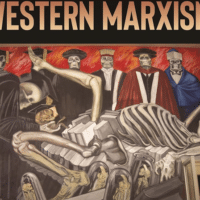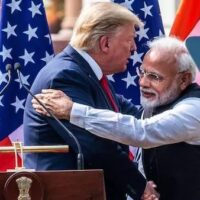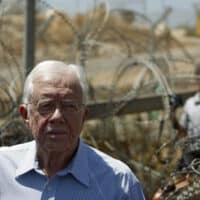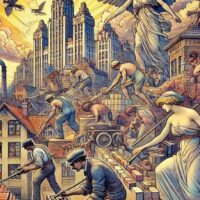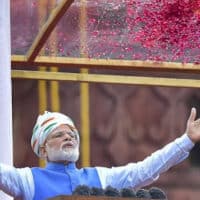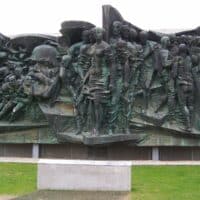-
Bat shit insane religious fanaticism is a requirement for U.S. empire managers
The world is ruled by religious fanatics with nukes.
-
Lemkin Institute issues ‘red flag alert for genocide’ after Musk’s Nazi salutes
“Trans people, refugees, and migrants are not the threats,” the group said. “The billionaires with close ties to our new president who flash the Nazi salute and seek to replace the old elites with a new caste—that is the real threat to America.”
-
Sarah Glynn & John Clarke – “Climate Change is a Class Issue”
In January 2024, the World Economic Forum predicted that by 2050 climate change will cause 14.5 million deaths and $12.5 trillion in damage.
-
‘I am a Gazan’: Writing on Eleanor Marx in times of genocide on her 170th birthday
The youngest daughter of Karl Marx and her unwavering humanity in the face of injustice remain relevant for our times, writes DANA MILLS.
-
Dossier no. 84: Towards a New Development Theory for the Global South
As progressive governments take office in the Global South, now more than ever there is a burning need for a new development theory that can fulfill the Promethean aspirations of the darker nations.
-
With 350,000 in attendance, Claudia Sheinbaum’s Zocalo rally shows Mexico’s fourth transformation is thriving
Throughout her hour-long speech Sheinbaum addressed the central role of empowering women in her presidency, outlined her policies and achievements so far and directly spoke to relations with the United States.
-
Mass incarceration arose out of empire building across North America, Carribean and Pacific
The United States today has by far the world’s largest incarceration rate, with nearly two million people living in prisons and jails. The conditions in those facilities are often substandard, with Amnesty International criticizing the dehumanizing practice of holding prisoners in prolonged solitary confinement. Benjamin Weber’s book, American Purgatory: Prison Imperialism and the Rise of […]
-
Mary and her monster
Some thoughts on Mary Shelley and Frankenstein.
-
Domenico Losurdo: “Western Marxism: How it was Born, How it Died, How it can be Reborn”
Thought-provoking and polemical as ever, the recent publication of Domenico Losurdo’s “Western Marxism: How it was Born, How it Died, How it can be Reborn”, finally provides English readers with access to the prolific Italian philosopher and militant’s penultimate book.
-
Jean-Marie Le Pen: Life and death of a Nazi
John Mullen writes about the Nazi and colonial origins of Jean Marie Le Pen, and how they continue to influence French politics today.
-
“GDP-NATIONALISM”
There are at least three basic differences between European nationalism as it developed in the seventeenth century and the anti-colonial third world nationalism of the twentieth century.
-
Why be a doormat?
Canadian leaders are falling over themselves to placate the incoming Trump administration. It doesn’t have to be this way.
-
Disaster Nationalism is the new fascism
Richard Seymour on how crisis and catastrophe are feeding the far-right surge.
-
The case against ‘Western’ Marxism
RICHARD CLARKE applauds the assertion that Western Marxism represents a withdrawal from action to change the world into the academy.
-
The Gisèle Pelicot case: A catalyst for change in justice and society
The trial over the decade-long abuse involving numerous men has shaken many, and requires us to demand societal and judicial change.
-
How the wealthy engineered white supremacy: The Wilmington Massacre of 1898
The Wilmington, North Carolina, massacre of 1898, also called a coup, was not a spontaneous eruption of white supremacist violence, but instead came from the top leadership of the Democratic Party and was backed by the rich.
-
When Democrats and liberals smeared Jimmy Carter for criticizing Israel
Jimmy Carter, who died on Sunday at the age of 100, was attacked for telling the truth about Israel. Many Democrats joined the smear campaign.
-
Western Marxism, anti-communism and imperialism
Since the 1990s, Western Marxists have replaced imperialism with global capitalism that is untethered to Western imperialism. Western Marxists have also deemed socialist projects as a betrayal of their utopian views rooted in the Hegelian “purity fetish.”
-
Disempowering the people
The aim of all fascistic governments is to disempower the people; and the Modi government is no exception.
-
Looking backward autobiographically
I’m old enough to remember, just barely, the Great Depression: lines of shabby men waiting for free soup, better-dressed men selling apples on streetcorners, miles of evil-smelling, self-made shacks in a Hooverville near Newark.… In February 1937 I recall the movie newsreel with happy, unshaven sit-down strikers at GM in Flint, waving from the factory windows in a dramatic (Communist-led) victory which changed the USA.

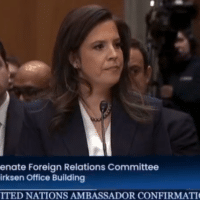

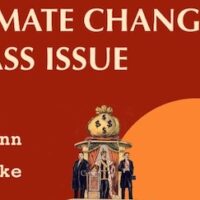
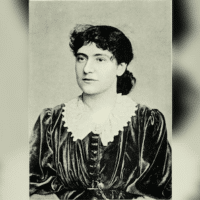

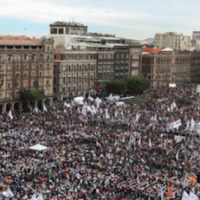
![[Source: newyorker.com]](https://mronline.org/wp-content/uploads/2025/01/Screenshot-2025-01-14-at-42345 PM-200x200.png)

